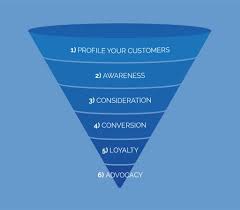The Fundamentals of SEO
Search Engine Optimization (SEO) is a crucial aspect of digital marketing that helps websites rank higher in search engine results pages (SERPs). By optimising various elements of a website, businesses can improve their online visibility and attract more organic traffic. Here are some key SEO basics to help you understand the essentials:
Keyword Research
Keywords are the foundation of SEO. Conduct thorough keyword research to identify relevant terms and phrases that your target audience is searching for. Use tools like Google Keyword Planner or SEMrush to discover high-volume keywords with low competition.
On-Page SEO
On-page SEO involves optimising individual web pages to improve their search engine rankings. This includes creating high-quality content, using relevant keywords in meta tags, headings, and URLs, and ensuring proper internal linking structure.
Off-Page SEO
Off-page SEO focuses on building authority and credibility for your website through external factors. This includes acquiring backlinks from reputable sites, engaging in social media marketing, and fostering relationships with influencers in your industry.
Technical SEO
Technical SEO deals with the backend aspects of a website that impact its search engine visibility. This includes improving site speed, fixing broken links, optimising mobile responsiveness, and creating an XML sitemap for search engines to crawl.
User Experience (UX)
A positive user experience is essential for both visitors and search engines. Ensure your website is easy to navigate, loads quickly, and provides valuable content that meets user intent. Search engines reward sites that offer a seamless user experience.
Monitoring and Analysis
Regularly monitor your website’s performance using tools like Google Analytics and Google Search Console. Analyse key metrics such as organic traffic, bounce rate, keyword rankings, and conversion rates to identify areas for improvement and track progress over time.
In Conclusion
Mastering the basics of SEO is essential for any business looking to establish a strong online presence. By implementing these fundamental principles effectively, you can enhance your website’s visibility, attract quality traffic, and ultimately achieve your digital marketing goals.
Essential FAQs on SEO Basics: Your Guide to Optimising Website Performance
- What is SEO and why is it important?
- How do I start with keyword research?
- What are the key elements of on-page SEO?
- How can I improve my website’s off-page SEO?
- What is technical SEO and why does it matter?
- How does user experience (UX) impact SEO?
- Which tools are best for monitoring and analysing my SEO performance?
- How long does it take to see results from SEO efforts?
- What are common mistakes to avoid in SEO?
What is SEO and why is it important?
Search Engine Optimization (SEO) is a fundamental digital marketing strategy aimed at improving a website’s visibility in search engine results. It involves optimising various elements of a website to enhance its relevance and authority in the eyes of search engines like Google. SEO is crucial because it helps businesses attract organic traffic, increase brand awareness, and reach their target audience effectively. By implementing SEO best practices such as keyword research, on-page optimisation, and link building, businesses can improve their online presence, drive quality traffic to their site, and ultimately boost conversions and revenue. In today’s competitive online landscape, understanding and utilising SEO is essential for businesses looking to succeed and thrive in the digital realm.
How do I start with keyword research?
When embarking on keyword research as part of your SEO strategy, it’s essential to begin by understanding your target audience and their search intent. Start by brainstorming relevant topics and terms related to your industry or niche. Utilise keyword research tools such as Google Keyword Planner, SEMrush, or Ahrefs to identify high-volume keywords with low competition. Consider long-tail keywords that are more specific and reflective of user queries. Analyse competitor keywords and search trends to uncover valuable insights. Remember, effective keyword research is a continuous process that requires refinement and adaptation to stay ahead in the ever-evolving digital landscape.
What are the key elements of on-page SEO?
When it comes to on-page SEO, several key elements play a crucial role in optimising individual web pages for search engines. These elements include creating high-quality and relevant content that incorporates target keywords strategically. Utilising appropriate meta tags, such as title tags and meta descriptions, helps search engines understand the page’s content. Structuring content with headings (H1, H2, etc.) improves readability and signals the importance of different sections to search engines. Additionally, ensuring proper URL structures that are concise and descriptive, as well as implementing internal linking to establish connections between related content, are essential components of effective on-page SEO strategies.
How can I improve my website’s off-page SEO?
Improving your website’s off-page SEO involves strategies that focus on enhancing your site’s credibility and authority in the eyes of search engines. One effective way to boost off-page SEO is by acquiring high-quality backlinks from reputable websites within your industry. Engaging in social media marketing and building a strong presence on platforms where your target audience is active can also contribute to improving off-page SEO. Additionally, fostering relationships with influencers and thought leaders in your niche can help increase brand visibility and attract valuable external links. Consistent monitoring of your backlink profile and actively seeking opportunities to earn quality backlinks are key steps towards strengthening your website’s off-page SEO presence.
What is technical SEO and why does it matter?
Technical SEO refers to the optimisation of a website’s backend elements to improve its search engine visibility and overall performance. This includes tasks such as enhancing site speed, fixing crawl errors, optimising meta tags, and ensuring mobile responsiveness. Technical SEO matters because it directly impacts how search engines crawl, index, and rank your website. By addressing technical issues and implementing best practices, you can enhance user experience, increase organic traffic, and ultimately improve your website’s chances of ranking higher in search engine results pages (SERPs). Ignoring technical SEO can lead to indexing problems, poor user experience, and lower visibility in search results, hindering your online presence and potential for growth.
How does user experience (UX) impact SEO?
User experience (UX) plays a significant role in determining the success of a website’s SEO efforts. Search engines like Google prioritise websites that provide a positive user experience to their visitors. Factors such as site speed, mobile responsiveness, intuitive navigation, and engaging content all contribute to a seamless user experience. Websites that offer a user-friendly interface and valuable information are more likely to rank higher in search engine results pages (SERPs) and attract organic traffic. By focusing on enhancing UX elements, businesses can not only improve their SEO performance but also create a more satisfying online experience for their audience.
Which tools are best for monitoring and analysing my SEO performance?
When it comes to monitoring and analysing your SEO performance, several tools stand out as top choices for providing valuable insights and data. Google Analytics is a widely used tool that offers in-depth information on website traffic, user behaviour, and conversion rates. Google Search Console is another essential tool that helps you monitor your site’s presence in Google search results, identify indexing issues, and track keyword performance. For more advanced analysis, tools like SEMrush and Moz Pro offer comprehensive SEO metrics, competitive analysis, and keyword research capabilities. By leveraging these tools effectively, you can gain a deeper understanding of your SEO performance and make informed decisions to improve your online visibility.
How long does it take to see results from SEO efforts?
One of the most commonly asked questions in the realm of SEO basics is, “How long does it take to see results from SEO efforts?” The timeline for seeing tangible results from SEO can vary depending on various factors such as the competitiveness of your industry, the quality of your website’s content and backlinks, and the effectiveness of your SEO strategies. In general, it may take anywhere from a few weeks to several months to start noticing significant improvements in your search engine rankings and organic traffic. Patience and consistent effort are key when it comes to reaping the rewards of your SEO endeavours.
What are common mistakes to avoid in SEO?
When delving into the realm of SEO, it’s crucial to be aware of common pitfalls that can hinder your efforts. One prevalent mistake to avoid is keyword stuffing, where excessive use of keywords in content can lead to a poor user experience and potential penalties from search engines. Neglecting mobile optimization is another critical error, as a growing number of users access websites on mobile devices. Ignoring the importance of quality backlinks and focusing solely on quantity can also harm your SEO strategy. Lastly, failing to regularly update and maintain your website’s content can result in outdated information that may affect your search engine rankings negatively. By steering clear of these common mistakes and staying informed about best practices, you can set yourself on the path to SEO success.




